Case Studies.
Add Case Study
Our Case Study database tracks 18,926 case studies in the global enterprise technology ecosystem.
Filters allow you to explore case studies quickly and efficiently.
Download Excel
Filters
-
(5,794)
- (2,602)
- (1,765)
- (764)
- View all
-
(5,073)
- (2,519)
- (1,260)
- (761)
- View all
-
(4,407)
- (1,774)
- (1,292)
- (480)
- View all
-
(4,157)
- (2,048)
- (1,256)
- (926)
- View all
-
(2,488)
- (1,262)
- (472)
- (342)
- View all
- View all 15 Technologies
- (1,732)
- (1,626)
- (1,605)
- (1,460)
- (1,423)
- View all 42 Industries
- (5,781)
- (4,113)
- (3,091)
- (2,780)
- (2,671)
- View all 13 Functional Areas
- (2,568)
- (2,482)
- (1,866)
- (1,561)
- (1,537)
- View all 127 Use Cases
- (10,333)
- (3,499)
- (3,391)
- (2,981)
- (2,593)
- View all 9 Services
- (503)
- (432)
- (382)
- (301)
- (246)
- View all 737 Suppliers
Selected Filters
---nasdaq--amzn_14.jpg)
|
NASA/JPL's Mars Curiosity Mission
NASA's Jet Propulsion Laboratory wanted to share the launching of Curiosity with fans by providing up-to-the-minute details of the mission. Supporting hundreds of thousands of concurrent visitors to the website would have been very difficult since NASA did not have significant web and live video streaming infrastructure.
|
|

|
Large Oil Producer Leverages Advanced Analytics Platform
Approximately 17,000 wells in the customer's portfolio have beam pump artificial lift technology. While beam pump technology is relatively inexpensive compared to other artificial lift technology, beam pumps fail frequently, at rates ranging from 66% to 95% per year. Unexpected failures result in weeks of lost production, emergency maintenance expenses, and costly equipment replacements.
|
|

|
Mining Firm Quadruples Production, with Internet of Everything
Dundee Precious Metal’s flagship mine, in Chelopech, Bulgaria, produces a gold, copper, and silver concentrate set a goal to increase production by 30%. Dundee wanted to increase production quality and output without increasing headcount and resources, improve miner safety, and minimize cost.
|
|

|
Driving Network Efficiency and Fraud Detection Efforts
Baltimore Gas and Electric Company (BGE) wanted to optimize the deployment and ongoing health of its advanced metering infrastructure (AMI) network and identify and reduce unbilled energy usage. BGE wanted a solution to deliver an annual economic benefit of $20 million.
|
|

|
Single Network for Multiple Smart Grid Services (ComEd)
With the passage of Energy Infrastructure Modernization Act (EIMA), ComEd was required to improve its overall system reliability. In order to reach the goals outlined in the law, ComEd decided to leverage a common network for multiple applications, including advanced metering infrastructure (AMI), distribution automation (DA) and smart city programs. With a modernized communications infrastructure, the utility would be able to increase grid reliability by identifying problems faster, optimizing business processes, automating problem resolution and reducing truck rolls.
|
|
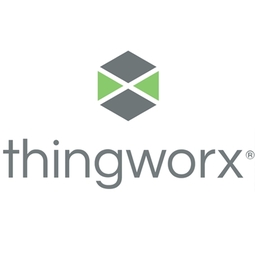
|
Smart, Connected Applications Maximize Agricultural Business Performance
OnFarm needed to move quickly to capitalize on a significant "smart agriculture" opportunity to build connected applications and dashboards that captured and monitored sensors in the field and provided actionable data back to their customers. The overall solution OnFarm determined necessary was a set of "dashboard-driven connected services utilizing an IoT backend" that would accomplish several key things: • Easily collect data from incompatible sensors via wireless networks • Provide a means to integrate, analyze, and correlate different data sets of information into easily-understood and easy-to-customize reports leading to specific actionable outcomes • Manage end-user permissions, distribute reports and business intelligence through a customizable Web interface that would include dashboards, allowing custom organization of data applicable to the business employing OnFarm's suite of services
|
|
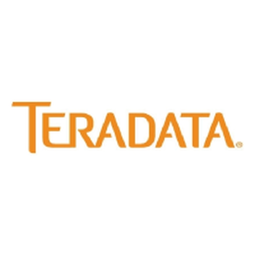
|
The Internet of Trains
Train operators the world over are expected to work miracles, i.e. never to be late. So, with acute service and availability targets to meet, an efficient maintenance program is important. And data-enabled functionality is a must for Siemens. Reactive maintenance (after an incident) and routine, preventive maintenance with its visual inspections and scheduled exchange of components, are no longer enough. We’ve moved on to more cost-effective, condition-based, predictive maintenance. The actual condition of components is measured via the transfer and remote monitoring of diagnostic sensor data; data which is also used to analyse patterns and trends. This helps predict when a component is likely to fail, so it can be repaired before anything untoward happens. To ensure the commercial sustainability of this approach, Siemens needs to use and re-use existing data, creating a kind of ‘Internet of Trains’. Towards this end, they’re analysing sensor data in near real time, which means they can react very quickly, ensuring that customer transport services aren’t interrupted. “It is really difficult to define every issue before it impacts operations using only data from the trains”, Kress explains. However, recent success stories prove that everything is possible.
|
|

|
Fleet Management Solution
A major trucking company in Africa was looking for a solution to track and manage their fleet of vehicles. Tracking was essential to ensure that the trucks were being driven safely and on the most optimal route.
|
|

|
15 000 Device Smart Water Metering Solution
Utility management company was looking for a single complete solution that would allow them to manage all services at once with a universal one-gate solution. Looking for such it was decided to deploy an automated resource management system for smart water metering and then expand it to gas and heating AMI step-by-step.Utility management companies are facing several serious challenges for correct consumption statistics and billing:- Manual data provision by customers is often incomplete.- Utility agents collect meter readings sporadically and there is no proof check available.- Residents are not motivated with accurate accounting which means they do not track consumption properly.- There are no clear reasons of dis-balance between amounts of resource supplied and consumed. In some cases, it can reach up to 30% ensuring a residential management company budget loss.- The utility company has no other way but process meter readings manually wasting several days every month for more or less accurate accounting.- Undetected on time, for example, water leaks worsen this situation and brings a lot of damage to the property.
|
|
_10.jpg)
|
Cloud Solution for Energy Management Platform-Schneider Electric
Schneider Electric required a cloud solution for its energy management platform to manage high computational operations, which were essential for catering to client requirements. As the business involves storage and analysis of huge amounts of data, the company also needed a convenient and scalable storage solution to facilitate operations efficiently.
|
|
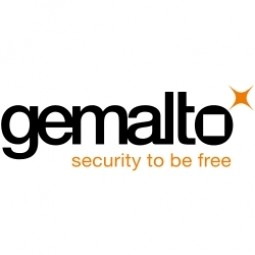
|
Integrated Smart Card and Fingerprint Biometric Authentication
Protecting IT systems and employee identity credentials has always been a priority for AXA Technology Services. Strong authentication devices have been deployed more employees who are traveling and working remotely while still needing access to IT systems. Smart card-based devices are an optimal solution because of their security, convenience and cost advantages.
|
|

|
ABB Case Study
Top ABB customers asked for advanced services and faster parts replacement to keep their plants up and running, where production downtime can cost up to $2 million per minute.
|
|

|
Davenport Energy Reduces Idle Time by 80% with FleetOutlook
Davenport Energy was looking for a way to better track and manage their large, diverse fleet of vehicles by delivering real-time data and providing the ability to track, locate and manage their drivers while out in the field.
|
|

|
Medanta the Medicity
Medanta is one of India's largest multi-super specialty institutes located in Gurgaon, India. Some of the key challenges facing Medanta included: - No Monitoring & Control over Energy Use, Indoor Air Quality, Indoor Lighting Quality & Noise Levels. - No compliance monitoring of temperature & pressure in critical care wards. - Energy bills were a surprise with no way to forecast energy costs. - Missing data & insights that could be used for targeting areas of improvement. - Existing Billing Management System (BMS) was inflexible and could not be used across the enterprise to serve the needs of different users. Requirements Based on these challenges, Medanta was looking for a comprehensive solution to Monitor & Control: - Energy Usage - Power Generators - Clean Rooms - HVAC Temperature - Chiller Temperature - Hydrant Pressure - Air Quality & Noise Levels - Critical Wards
|
|

|
Microsoft Supports Unilever in Digital Twin
Unilever's customers expect customization, on-demand products and brands with purpose
|
|

|
IoT Gateway Enables Faurecia to Improve Traceability for Customers
While Faurecia has a long track record of providing its customers with exemplary products, the increasing need to provide customers traceability for the parts it was producing motivated the company to further support these efforts. The large automotive OEMs expected Faurecia to be able to both track the process of operations and production and to make that information available on demand. For example, customers wanted to know which airbags were added to which cars, as well as detailed data characteristics about how each airbag was installed, including torque and angle of installation.
|
|

|
Leveraging the IoT to Gain a Competitive Edge in International Competition
Many large manufacturers in and outside Japan are competing for larger market share in the same space, expecting a growing demand for projectors in the areas of entertainment, which requires glamor and strong visual performance as well as digital signage that can attract people’s attention. “It is becoming more and more difficult to differentiate ourselves with stand-alone hardware products,” says Kazuyuki Kitagawa, Director of Service & Support at Panasonic AVC Networks. “In order for Panasonic to grow market share and overall business, it is essential for us to develop solutions that deliver significant added value.” Panasonic believes projection failure and quality deterioration should never happen. This is what and has driven them to make their projectors IoT-enabled. More specifically, Panasonic has developed a system that collects data from projectors, visualizes detailed operational statuses, and predicts issues and address them before failure occurs. Their projectors are embedded with a variety of sensors that measure power supply, voltage, video input/ output signals, intake/exhaust air temperatures, cooling fan operations, and light bulb operating time. These sensors have been used to make the projector more intelligent, automatically suspending operation when the temperature rises excessively, and automatically switching light bulbs. Although this was a great first step, Panasonic projectors were still not equipped with any capability to send the data over a network.
|
|
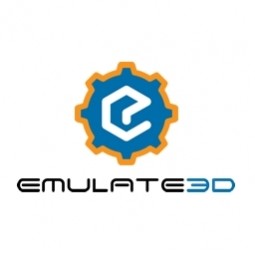
|
Intralox Using Demo3D Case Study
Intralox strives to create significant economic value for our customers by optimizing their conveyance systems. Intralox wants to emulate real-world production environments for end users and OEMs working in multiple industries, including packaging, warehousing, parcel, beverage, brewery, food, tire, and consumer goods. They frequently had to perform physical tests to demonstrate to customers how ARB equipment would handle their products.
|
|

|
Predictive Maintenance for Building Equipment
Unexpected failures of building equipment can result in significant problems for facility operators. For example, refrigeration system downtimes result in expensive loss of perishables for retailers, or drugs for pharmacies. HVAC system downtimes drive need for emergency maintenance activities, and result in reduced customer satisfaction.
|
|

|
Enhancing Honda's Connected Car Experience
Honda Connect Services needed a way to ensure the best possible connected car experience for their customers.
|
|

|
29% Energy Savings with Industrial Optimisation
A leading global Chinese LCD panel manufacturer needed to ramp up cost competitiveness and carbon footprint. It needed to cut down on the 47 GWh of annual electrical energy used for compressed air production at the manufacturing site.
|
|

|
Ignition Brings Control, Flexibility to Energy Management Software
The energy management project encompasses many different facilities such as public buildings, swimming pools, industrial plants, and even street lighting. It involves over 22,000 tags, and nearly 600 devices and 50 clients, and those numbers continue to grow.The size of the project presented many challenges. There were a large number of prospective users, all of whom needed access to the system without it being installed at each client. There was an enormous amount of data in many different formats, and vast geographical distances between installations. Also, the software had to be flexible enough to grow with the system as new installations were added. Cofely needed a SCADA solution that would give their customers the ability to analyze all their real-time and historical energy data, and would also be cost-effective and scalable.
|
|

|
Smart SCADA-based Emergency Plume Gamma Monitoring System
During 2010, a total of ten nuclear power stations were chosen to have their legacy Emergency Plume Gamma Monitoring Systems (EPGMS) replaced. Servelec Controls has over twenty years’ experience in the provision of EPGMS to the nuclear power generation industry. The primary function of EPGMS systems is to provide essential information to an emergency team on site to assist in the assessment of the local population's radiation dose in the unlikely event of an accidental release of radioactivity.
|
|
---nyse--ge_1.jpg)
|
American Eagle Achieves LEED with GE LED Lighting Fixtures
American Eagle Outfitters (AEO) was in the process of building a new distribution center. The AEO facility management team decided to look at alternate options for lighting layout that could provide energy and maintenance savings. AEO would need a full-time maintenance employee just to replace burned-out fluorescent tubes.
|
|
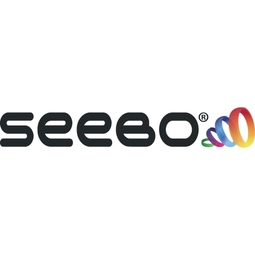
|
Oseco Case Study - Delivering Condition Monitoring with Seebo
Oseco were completely new to Industry 4.0, Oseco needed to find a lean and quick method for successfully implementing condition monitoring.
|
|
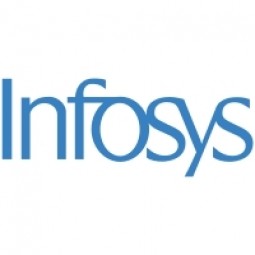
|
Cummins Streamlines its Order Management Process with Infosys
Cummins Power Generation BU launched Frontier program which will allow a common, global order-management system that will enable its customers to receive the right product at the right price at the right time.
|
|

|
Oil & Gas Retrofit with the Internet of Things
A major oil producer wanted to IoT-enable their infrastructure and assets but lacked the technical expertise.
|
|

|
Commercial Building Automation Boosts Energy Efficiency
One of the challenges to building automation is the multitude of non-interoperable communications protocols that have evolved over the years. Buildings have several islands of automation. Bridging the islands of different automation without losing the considerable investment in each specialized control network is the main focus in this solution.
|
|
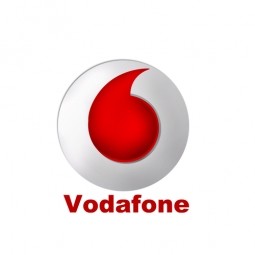
|
Helping Enexis Power Ahead with Smart Meter Rollout
Enexis is an independent grid operator and one of the largest energy distributors in the Netherlands. Working with energy suppliers, it manages 2 million gas and 2.6 million electricity connections to customers in seven provinces, representing approximately one third of the Dutch market. In 2008, a European Union (EU) directive stipulated that 80% of energy customers must be able to monitor energy consumption by 2020. The Dutch government responded by making a legal requirement for energy operators to install smart metering technology in homes. To meet these targets, Enexis will need to deploy approximately 5 million smart meters, each transmitting energy consumption data once a day, every day. Since 2011, Enexis no longer installs conventional meters, every new meter installed in the grid is a smart meter. This means that during the first few years of rollout, smart meters are installed across the grid. To achieve this, Enexis had several options. Routing data via Power Line Connections (PLC) was impractical because, to work effectively, entire districts would have to install smart meters simultaneously. With the initial rollout limited to replacing faulty meters and new installations, this was not viable. Transmitting data via WiFi, another option, would mean home owners needing a guaranteed connection. “Because we install smart meters that are scattered across our distribution network, the most effective solution was GPRS over M2M SIMs,” says Lonneke Driessen-Mutters, Smart Metering Operations Manager at Enexis. M2M SIMs installed in smart meters would be able to transmit data via Vodafone’s comprehensive mobile coverage in the Netherlands, with no homeowner involvement and minimum installation effort. Enexis invited a number of mobile communications suppliers in the Netherlands to tender. After careful consideration, Vodafone was selected based on cost and service commitments. In addition, Enexis already had a relationship with Vodafone, as they provide approximately 3,000 of the company’s voice and data connections, so they knew the service they could expect. “We’re owned by local government, so our money is public money. The solution had to be cost effective as we have to be careful what we spend,” says Driessen-Mutters.
|
|
---nyse--ge_1.jpg)
|
Unifying Predictive Analytics and Real-time Process Optimization for Oil & Gas
A leading oil & gas company and one of GE’s most trusted and innovative partners had no way of integrating independent equipment issue detection capabilities. The company was losing money as a result of unplanned downtime due to maintenance scheduling issues and outdated software systems. They believed that a well-designed combination of IT assets would generate stronger insight than they had, affording them the ability to monitor offshore equipment from an onshore facility using real-time insight and predictive analytics.
|
|

